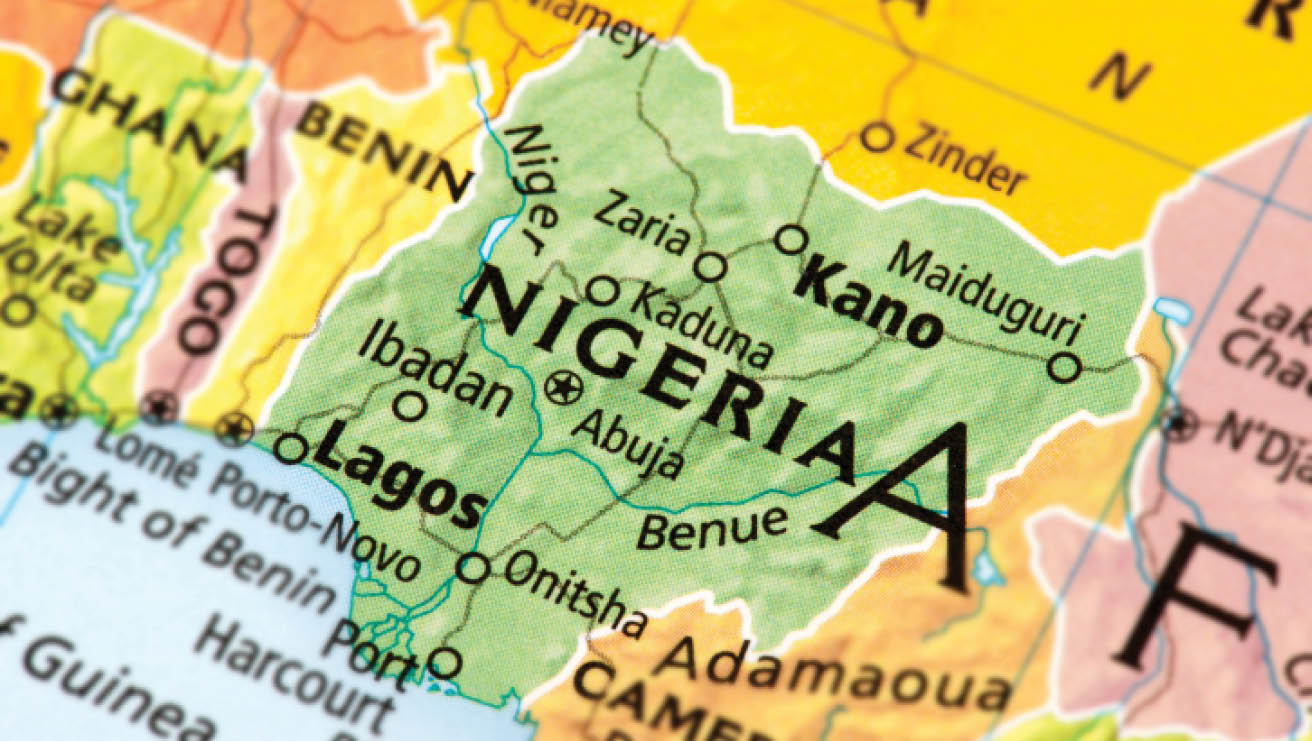Column No.6: The tragedy of things remaining the same
Three years ago, when this column was still young (in fact, it was the 7th edition, to be exact) I wrote the article below, titled ‘Nasarawa’s growing ‘Bermuda Triangle’ for uniformed personnel’. I will repeat this: Three years ago. But alarmingly, if you read it today, it appears nothing has changed. Nasarawa, Niger, and Kaduna […]

nigerian map
Three years ago, when this column was still young (in fact, it was the 7th edition, to be exact) I wrote the article below, titled ‘Nasarawa’s growing ‘Bermuda Triangle’ for uniformed personnel’. I will repeat this: Three years ago. But alarmingly, if you read it today, it appears nothing has changed. Nasarawa, Niger, and Kaduna states have been joined by Plateau in the line-up of shame. – Abdulkareem
I’ve mentioned before – in fact, just last week – an anecdote about one of my bosses asking us to imagine a Nigeria, for one day, without our security operatives. But apparently, today that suggestion is a major stretch of one’s imagination, especially when the reality is that some persons, or groups, seem to have decided that it’s open season on our uniformed protectors. Earlier this week in Nasarawa State, the Federal Road Safety Corps (FRSC) confirmed the killing of two of its operatives at Mararaban Udege, in Nasarawa State, as well as the abduction of 10 other officers by the unidentified gunmen. A total of 26 personnel were attacked while traveling in two buses from Sokoto and Kebbi states, for a training programme in Udi, Enugu State.
The FRSC reported the incident to relevant authorities, yes. There were some news reports here and there, OK. There’s even grandstanding, via dramatic statements that ‘investigations are ongoing to ensure that the assailants are brought to book’. But, wait a minute: Where is the outrage. Where is the action? We’re talking about cold-blooded murder here, as well as the kidnapping of 10 federal government workers while on official duty. Surely we can do better than trite, lemony statements that have been recycled without end. The situation even brought back to my mind the push for FRSC officers to bear arms, something I had in the past disagreed with. However, in light of recent events, I’m now inclined to agree. But I digress.
The rub in all of this is Nasarawa State, where the shocking attack on FRSC officers happened. The same Nasarawa where a former Chief of Defense Staff was attacked and murdered en route home from his farm. The same state where an army captain met a gruesome death at the hands of kidnappers while negotiating the release of a victim many years ago. Also, anyone remember the Ombatse group? How could any sane person forget that militia group in Nasarawa Eggon, which in May 2013, was reported to have killed 74 police and 10 State Security Service officers. Fast-forward to late August 2020, and the discovery and dislodgement of a camp, by troops, seeing over 410 members of the Darul Salam terror group surrendering, all in a place called Uttu in Toto LGA, in – you guessed right – Nasarawa State.
Former President Jonathan to commission Kashimbilla Dam, airport
Unmasking Nigeria’s Insecurity: A failure of governance and responsibility
Even as it’s beginning to look like a ‘Bermuda Triangle’ of sorts for security personnel, Nasarawa’s proximity to Abuja is such that even boundaries tend to be blurry. Workers at the FCT have made the nearby state home, mostly due to the crazy real estate reality of the capital city itself. But with all of these major security incidents in Nasarawa, it’s not affordable to wring hands, faux-wail, and watch thing spiral out of control. Not when Abuja is, literally, next door. Yes, there’s a thoughtfully-placed ‘super camp’ in Toto, with which the Nigerian Army is doing wonders, and that’s great. But with the recent incident involving FRSC officers, it’s sadly not enough.
While the state appears to be incredibly unfriendly for uniformed personnel, let it also be noted, that this isn’t a problem peculiar to Nasarawa State. There are similar problems in neighbouring Kogi, Niger, and Kaduna states. Even a crudely-done triangulation of these locations would show one important place smack in the middle: Abuja. Before someone screams ‘All Nigerian lives matter!’ I’d like to state here that as the federal capital, its strategic and symbolic importance needs to be given priority. The simplification of which would mean, if we can’t secure Abuja, then where in Nigeria is safe?
In any case, Abuja itself has recently been revealed, courtesy of the Nigerian Customs Service, to have major security breaches in the form of forest camps, harbouring terrorists and other deadly criminals. Two of the camps were said to be situated within Abuja, one in Kogi State, and another in – you guessed right again – Nasarawa State. It’s really tough to ignore that fact, isn’t it? But what shouldn’t be so tough, is asking questions about what exactly is being done about this growing ‘Bermuda Triangle’.
We’ve had enough of hand-wringing, blame-trading, and the thankfully-figurative being ‘on top of the situation’ (apologies to the Nigeria Police Force). So, this piece should be seen as a sort of letter to – in no particular order – the National Security Adviser, Director-General of the DSS, Minister of Defence, service chiefs, and the Inspector-General of Police. The good people of Nasarawa State, and we fellow Nigerians, are urging you all to dismantle this ‘Bermuda Triangle’. Because, really, when you look at all the tragic facts and figures out there, whatever more do the authorities want – a lovely, gilded invitation to do something about it?
